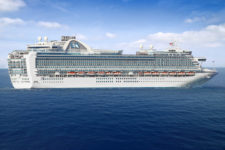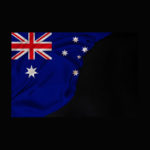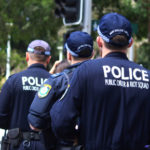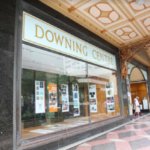The Offence of Criminal Negligence in New South Wales

The same day that The New South Wales Government ordered the closure of Bondi Beach, slamming beachgoers for being careless and flouting COVID-19 social distancing regulations, the Ruby Princess was given the go-ahead to dock in Sydney, bringing with her a significant number of sick passengers, several of whom were infected with the Coronavirus.
Various Federal and State Government departments have avoided taking responsibility for the ship since it was revealed that 2,700 passengers were allowed to freely disembark in Sydney, despite more than 100 passengers on board showing signs of respiratory illnesses, and some being transported to hospital with COVID-19 like symptoms.
New South Wales Health was first in the firing line, but it has defended its actions, saying that although it was aware of 104 acute respiratory infections on board, the ship was considered to be “low risk” for carrying COVID-19.
There are important questions that questions remain unanswered, but one thing seems crystal clear: that the NSW Ports Authority did all it could to ascertain the health of passengers and crew before allowing the Ruby Princess to dock, making contact with the ship on several occasions, and also the cruise ship operators, Carnival.
On each occasion the Ports Authority was assured that COVID-19 was not an issue on board.
The problem, of course, is that under the current system NSW Ports needs to rely on information provided to it by the ships entering Australian waters.
The other problem is, that only days prior to the docking of the Ruby Princess, the New South Wales Government implemented new public health measures, stating that all people who had just arrived in Australia must self-isolate for 14 days. Rules, which it did not provide clear direction or clarification of, for those passengers who came off the Ruby Princess.
‘Gaping hole’ in Australia’s biosecurity network
Ironically, about 6 weeks prior to the Ruby Princess docking, alarm bells were raised by the Maritime Union which sent an email to the NSW Port Authority warning it that ship crews could not be relied upon to diagnose COVID-19 cases, nor could they be accurately relied upon to self-report illnesses.
Since then, Home Affairs Minister Peter Dutton has concurred that under the current reporting system, it is possible for ships to present misleading information about the health status of those on board.
In the wake of all these revelations, and the considerable impact of the decision to let the ship dock, the New South Wales Police Force will now launch a criminal investigation into the matter, to ascertain specifically whether the operators of the Ruby Princess were completely transparent about the ill passengers and crew on board.
Ruby Princess responsible for more than 10% of Australia’s total cases
At least 662 people linked to the cruise have been diagnosed with COVID-19, more than 10% of Australia’s total cases. Four more passengers from the ship have died in recent days, – bringing the total number up to 11, and accounting for more than 30% of all Australian COVID-19 deaths.
Detective chief inspector Jason Dickinson from the state’s homicide squad will lead the investigation. There may also be a Coronial Inquest.
NSW Police Minister Mick Fuller says the investigation will review any ship records as well as correspondence between the captain and captain’s doctor, and that both the NSW Health Minister Brad Hazzard and Ports Minister Andrew Constance will be interviewed. Passengers on board the Ruby Princess who believe they may have information pertinent to the investigation have been urged to call crime stoppers.
The offence of criminal negligence in NSW
Section 54 of the Crimes Act 1900 makes it an offence punishable by a maximum penalty of two years in prison to engage in negligence which causes grievous bodily harm.
To establish the offence, the prosecution must prove beyond reasonable doubt that the defendant:
- Committed an unlawful or negligent act, or made an admission, and
- That conduct caused grievous bodily harm.
The terms ‘unlawful’ and ‘negligent’ are not defined by the legislation, but the courts have found that an unlawful act must be ‘dangerous’ in order to amount to a crime.
The courts have further found that a negligent act must exhibit ‘such a high degree of disregard for the life and safety of others as to be regarded as a crime against the community generally’ in order to be criminal. This is a higher test than that which applies to civil liability.
‘Grievous bodily harm’ has been generically defined by the courts as ‘really serious harm’.
However, section 4 of the Crimes Act states that such harm includes:
- the destruction (other than in the course of a medical procedure or a termination of a pregnancy in accordance with the Abortion Law Reform Act 2019) of the foetus of a pregnant woman, whether or not the woman suffers any other harm,
- any permanent or serious disfiguring of a person, and
- any grievous bodily disease.
In the case of COVID-19, the prosecution would need to establish that the virus amounts to a ‘really serious’ disease in addition to attaching liability to any defendant/s and proving that their actions caused the condition.
Defences to the charge of criminal negligence include duress, necessity and self-defence.
The saga continues
As the NSW Police begin investigations, around 200 crew members remain on board the Ruby Princess, and currently show symptoms of COVID-19, as medical officers continue to conduct testing. The ship will remain in Australian waters, treating crew members in their medical facilities, and delivering those who require additional medical care to shore.








